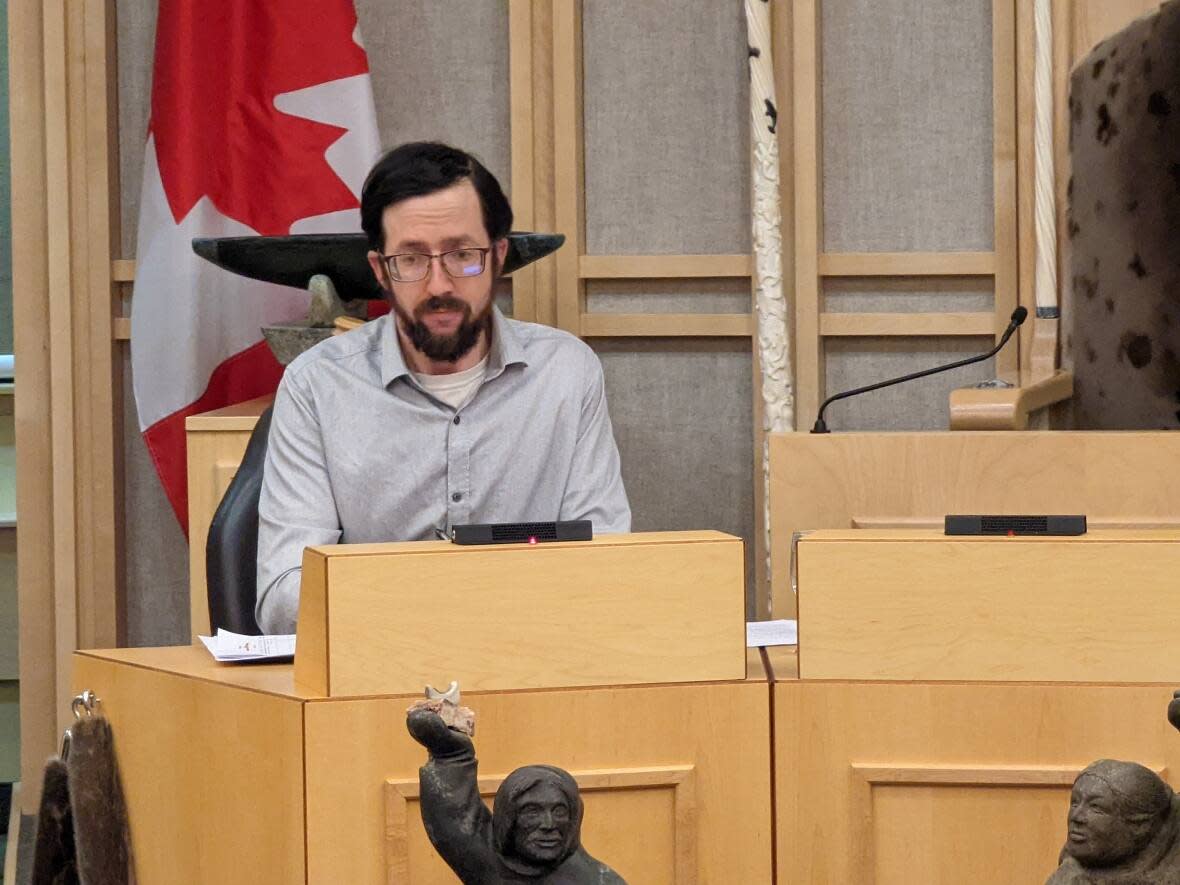Nunavut gov't distributes more COVID-19 funding, battles vaccine misinformation

Nunavut's health minister is warning people about the danger of misinformation, saying that radio and social media are being used by some to "spread lies" about COVID-19 vaccinations.
"There is nothing that can be gained from these lies," said John Main, during an update Thursday. "Vaccine misinformation puts Nunavummiut at risk, misinformation only provides fear and it destroys trust."
Main said getting vaccinated is a personal choice, and he asked those who don't believe in vaccines not to put others at risk by spreading misinformation.
"Those who are not vaccinated are at much greater risk of becoming ill or dying of COVID-19," he said. "The COVID-19 vaccines are safe. As I see our youth and others getting vaccinated, I feel real hope for the future."
Missed the update? Watch it here:
Premier P.J. Akeeagok announced the government would be distributing $3.25 million to help vulnerable people during the COVID-19 pandemic access food and housing.
As part of that investment, he said, the Department of Family Services would be re-allocating $1.25 million to community food organizations and municipalities for food security initiatives. It would also dole out another $1 million for the Ikur'raq cabin building program and $250,000 to four non-profit organizations to help them deliver programming.
Isolation hubs to close soon
The government is looking into stopping its isolation hub program in southern Canada in the coming months.
Main said back in 2020, hundreds of Nunavummiut passed through the facilities. Last week, only 29 people left the hubs to return to the territory, he said.
"The numbers are way down, and we see that trend continuing," he said. "There's less need for them in the coming months. We do expect to roll up the isolation hub operation entirely and do away with that option completely."
Main was not able to say how much the centres had cost the territory.
Last year, however, the Nunavut government told CBC News security services alone cost more than $40 million between April and September 2020.
How restrictions get imposed
Dr. Michael Patterson, the territory's chief public health officer, provided insight Thursday into how various levels of restrictions are decided and what is currently known about the latest mutation of the Omicron variant.
"It's important to understand the number of cases of COVID-19 in a community does not necessarily represent the level of spread or the risk," he explained.
Decisions are made based on those numbers, he said, but public health also considers the number of households involved in an outbreak, how fast the virus is spreading, whether health staff are keeping on top of contract tracing and the percentage of the community that's vaccinated.
As for the new subvariant, known as BA.2, Patterson said it's been named a "variant of interest" and whether it can spread faster or cause more serious sickness is unknown at this point.
The numbers
There are 279 active cases of COVID-19 in 16 communities in Nunavut. That's a drop from the 295 cases reported Wednesday.
The list is as follows:
18 in Arviat.
28 in Baker Lake.
31 in Cambridge Bay.
1 in Chesterfield Inlet.
15 in Coral Harbour.
55 in Igloolik.
33 in Iqaluit.
0 in Gjoa Haven.
0 in Kimmirut.
16 in Kinngait.
0 in Kugaaruk.
2 in Kugluktuk.
5 in Naujaat.
0 in Pangnirtung.
7 in Pond Inlet.
0 in Qikiqtarjuaq.
18 in Rankin Inlet.
5 in Sanirajak.
28 in Sanikiluaq.
11 in Taloyoak.
6 in Whale Cove.
Patterson said Igloolik is "still behind" when it comes to dealing with the case load. "There's still a big workload and they're catching up, but they're not there yet."
He said more than half the calls to Nunavut's COVID-19 hotline were from Igloolik on Wednesday.
When asked what is being done to address the backlog on the hotline, Main said the wait times have dropped from what they were during the winter holidays because the government has added more resources to it. Calls for food hampers have been diverted to a separate line.
He encouraged people to continue using it and to be patient, and said he would consider adding a call-back feature to the system.


